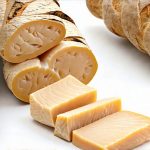Prostatitis, inflammation of the prostate gland, presents as a frustrating condition for many men, with symptoms ranging from pain in the pelvic region, groin, lower back, and testicles, to urinary difficulties like frequent urination, urgency, and painful ejaculation. Traditional understanding often focuses on bacterial infection or non-inflammatory causes, but emerging research suggests a more complex interplay of factors may contribute to its development and exacerbation. Increasingly, attention is turning towards the potential role of diet and food sensitivities as possible triggers or aggravating elements in prostatitis symptoms.
The link between what we eat and prostate health isn’t new; dietary choices impact overall inflammation levels within the body, and chronic inflammation is heavily implicated in many forms of prostatitis. However, the idea that specific foods – beyond general inflammatory diets – could directly influence prostatitis symptoms through sensitivity reactions is gaining traction as men explore alternative avenues for symptom management alongside conventional treatments. This exploration necessitates a deeper look into the potential mechanisms at play and available evidence.
The Gut-Prostate Connection
The gut microbiome, the vast community of microorganisms residing in our digestive tract, plays an unexpected but significant role in overall health, extending far beyond digestion. A growing body of research demonstrates its profound influence on the immune system, and a disrupted microbiome – known as dysbiosis – can contribute to systemic inflammation. This is where the connection to prostatitis arises. The prostate gland isn’t directly exposed to the gut, but inflammatory signals originating in the gut due to food sensitivities or imbalances can travel throughout the body via the bloodstream, potentially reaching and impacting the prostate.
This ‘gut-prostate axis’ suggests that addressing gut health could be a valuable component of managing prostatitis symptoms for some individuals. Food sensitivities, even mild ones, can disrupt the delicate balance within the gut microbiome, leading to increased intestinal permeability (“leaky gut”) and heightened immune activation. Consequently, this may amplify inflammatory processes throughout the body, including those affecting the prostate gland.
Exploring Dietary Triggers
Identifying specific dietary triggers is often a process of elimination and careful observation. Common culprits associated with food sensitivities include dairy, gluten (found in wheat, barley, and rye), soy, corn, eggs, nuts, and nightshade vegetables (tomatoes, peppers, potatoes, eggplant). However, the precise foods that trigger reactions vary significantly from person to person. It’s important to note that a food sensitivity isn’t the same as a food allergy; sensitivities typically involve milder symptoms and don’t necessarily elicit an immediate IgE-mediated immune response.
Identifying Potential Sensitivities
One approach to identifying potential sensitivities is an elimination diet, conducted under the guidance of a healthcare professional or registered dietitian. This involves removing suspected trigger foods for a defined period (typically 2-3 weeks) and then systematically reintroducing them one at a time while carefully monitoring for symptom changes. Keeping a detailed food diary alongside symptom tracking is crucial during this process to identify correlations between specific foods and prostatitis flare-ups. It’s essential to avoid self-diagnosing, as symptoms can overlap with other conditions.
The Role of Histamine Intolerance
Histamine is a chemical naturally produced in the body and found in certain foods. While necessary for various bodily functions, an imbalance – known as histamine intolerance – occurs when the body struggles to break down histamine effectively. This can lead to a wide range of symptoms, including inflammation, digestive issues, and even prostate-related discomfort. Foods high in histamine or those that trigger histamine release (such as fermented foods, aged cheeses, processed meats, alcohol) may exacerbate prostatitis symptoms in individuals with histamine intolerance.
Inflammation & Dietary Patterns
Beyond specific food sensitivities, overall dietary patterns significantly influence inflammatory levels. A diet rich in processed foods, sugar, unhealthy fats, and lacking in essential nutrients can fuel chronic inflammation throughout the body. Conversely, a diet emphasizing whole, unprocessed foods – fruits, vegetables, lean proteins, healthy fats, and fiber – provides anti-inflammatory compounds that support immune function and may help mitigate prostatitis symptoms. Focusing on an anti-inflammatory dietary approach is generally beneficial for overall health and could potentially complement other management strategies for prostatitis.
It’s crucial to remember that the relationship between food sensitivities and prostatitis is complex and still under investigation. While anecdotal evidence and emerging research suggest a potential link, more robust scientific studies are needed to fully understand the mechanisms involved and establish definitive guidelines. Managing prostatitis often requires a multifaceted approach tailored to individual needs, incorporating conventional medical treatments alongside lifestyle modifications such as dietary adjustments. Individuals experiencing prostatitis symptoms should consult with healthcare professionals for accurate diagnosis, personalized treatment plans, and guidance on safe and effective strategies for symptom management. Self-treating or making significant dietary changes without professional supervision isn’t recommended.





















